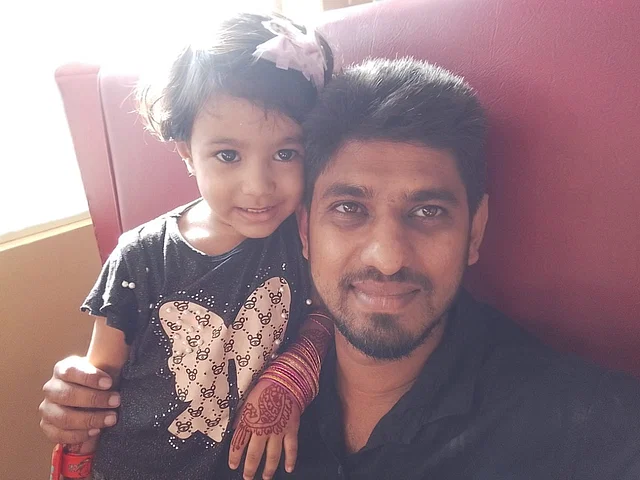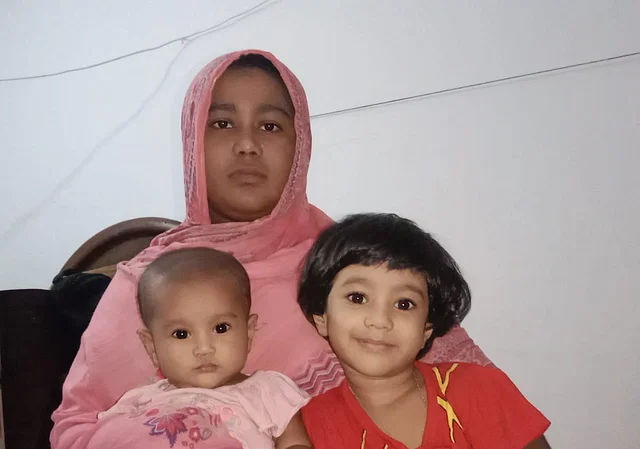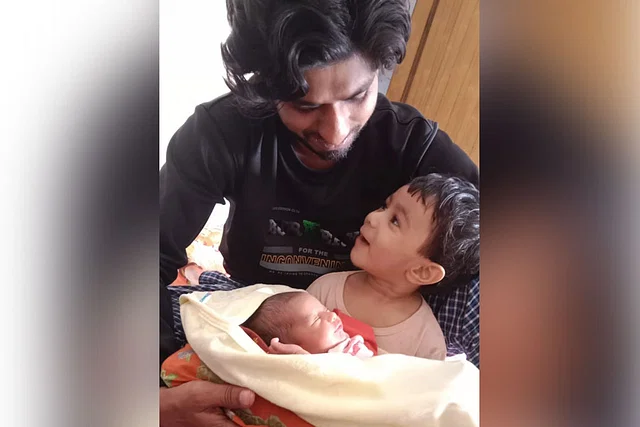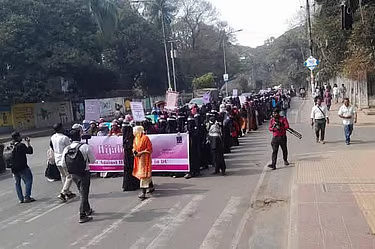Hassan Mehedi, a doting father, was always eager to hear his daughters call him “Abu” (father). Even when he was outside, he would call home multiple times just to hear them. His seven-month-old daughter, Meherash, had just learned to say “Abu” in her babble. On July 18, Mehedi promised that he would return home after covering a news story that night. But instead, what returned was his lifeless body.
Hassan Mehedi, a journalist, lost his life in the early stages of the anti-discrimination student movement. He was working for the online news portal Dhaka Times and was shot dead while on duty in Jatrabari, Dhaka, on July 18. Before that, he had also worked for News24, a private television channel.
Mehedi lived with his wife and two children in a rented two-room apartment in Keraniganj. They shared the flat with two other families, each having one room. The family had planned to move into a two-bedroom house in August, but that new home was no longer needed. Hassan Mehedi now rests in his grave in Bauphal, Patuakhali. His wife, Farhana Islam, said, “We don’t need a new place anymore. My children’s father is resting in the ground now. The memories in that one room have become too painful. I have moved back to my parents’ home with my children.”
During the ‘Buke Petechi, Guli Koro’ exhibition at DrikPath Bhaban on September 6, Farhana Islam shared her grief. In a subsequent phone interview on September 8, she told Prothom Alo, “I learned the beauty of small happiness from my husband. Our elder daughter is only three and a half years old, and the younger one is eight months old. We started our family in 2018. Was this the time for him to go?”

The Phone Unlock Before the Bullet Struck
On July 18, near the Mayor Hanif Flyover in Jatrabari, police had stationed armored vehicles and were in multiple confrontations with protesting students. Hassan Mehedi was first discovered by a student named Md. Yasin Ahmed. Yasin recalled, “The police and students were fighting for control of the area, with police firing bullets and then retreating. We saw one body with part of the head blown off. Nearby was another man with a journalist ID hanging from his neck.”
Yasin realized that just before Mehedi was shot, he had unlocked his phone using his fingerprint but could not make the call before falling. When Yasin found him, the phone was still open. He used the call log to inform Mehedi’s family about his critical condition.
Yasin and others took Mehedi to three different hospitals between 4:30 and 5 PM, but all were closed. They then brought him to Dhaka Medical College. Although Mehedi was wearing a shirt, upon removing it, they saw that his chest and arms had been riddled with shotgun pellets. It was around 7 PM when his wife arrived at Dhaka Medical.
Farhana Islam had believed that shotgun pellets couldn’t be fatal. She hoped that her husband’s injuries wouldn’t be too severe. However, the pellets had struck his upper chest and head, leaving him gravely wounded. The doctors at Dhaka Medical declared him dead. Hassan Mehedi’s body was laid to rest in Bauphal, Patuakhali, on July 20.
Mehedi’s father, Md. Mosharraf Hossain, shared his grief with Prothom Alo, saying, “Whenever anyone in the family expressed pain, Mehedi would act as if he felt the pain himself. He had so much empathy for others! We buried him in our own yard so he will always be close to us.”
Mosharraf, who has suffered from heart problems and had multiple strokes, is now left with his 13-year-old son, who is studying at a madrasa, and his middle son, who lives in Gazipur. The family had depended entirely on Mehedi’s income, which he used to support his parents, brothers, and his own family of four. Despite his limited earnings, Mehedi managed everything with care and love.

Since his death, the family has received some financial support from various sources. But his wife Farhana lamented, “Yes, we need money. But can money ever replace a father? My elderly in-laws, my younger brother-in-law—what future awaits them?”
While speaking to Prothom Alo, Mosharraf Hossain became emotional, asking, “Do you know what happens when the hope of a family is taken away? If you come and see Mehedi’s mother, you will understand the depth of our loss.”
Mehedi’s wife shared a poignant story about his love. Earning only 25,000 BDT a month, Mehedi could barely meet all of his family’s needs. His three-and-a-half-year-old daughter, Maymuna Binte Nisha, loved to eat out, so they would go out once a week. They allocated only 100 to 150 BDT for these outings. Most of the time, Nisha would pick something so expensive that it exhausted their entire budget. She would eat while Mehedi and his wife sat beside her, sharing stories before returning home.
Maymuna still doesn’t fully understand that her father is gone forever. At the DrikPath exhibition, she was happily running around. When she slightly hurt herself by bumping into a door, she rushed to her uncle and said, “Call Baba and tell him I’m hurt.”









